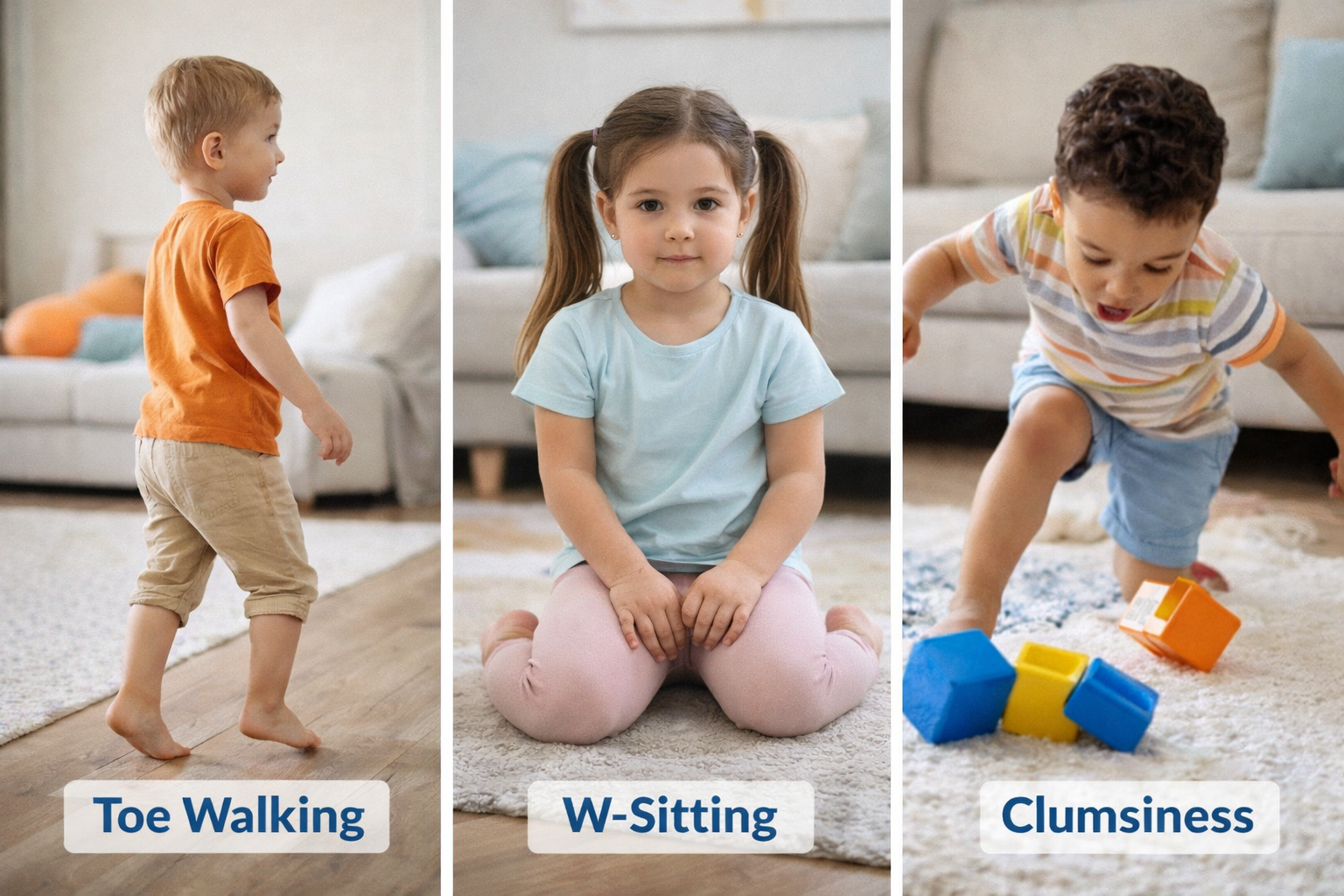What Are Tethered Oral Ties?
Tethered Oral Ties (TOTs) are restrictions in the tongue, lip, or cheeks caused by tight tissue attachments. These ties limit natural movement and can impact both feeding and development.
For babies, TOTs often show up as:
- Trouble latching or staying latched
- Reflux, gas, or colic
- Long or inefficient nursing sessions without satisfaction
- Poor weight gain despite frequent feeding
For moms, TOTs can cause:
- Painful nursing
- Clogged ducts or mastitis
- Frustration and stress during feeding sessions
But TOTs don’t stop at feeding. Left unaddressed, they may affect speech, dental development, sleep quality, airway function, and even posture as children grow.
Why TOTs Are Often Missed
Many parents hear, “It’s normal, they’ll grow out of it,” when raising concerns about latch or feeding difficulties. The truth is that TOTs are frequently overlooked because providers may only evaluate the tissue itself—without considering how that restriction affects the nervous system, fascia, and overall function.
At Pinnacle Chiropractic, we see ties differently. A tie is never just about the tissue. It’s about the hidden stress and tension patterns that keep babies from thriving.
The Recommended Path to Healing
The families we serve in Sarasota, Bradenton, and Lakewood Ranch see the best results when following a three-step care path.
Nervous System First
We begin with INSiGHT scans and gentle, neurologically focused adjustments to reduce fascial tension and calm the nervous system. This prepares your baby’s body for the best possible outcome.
Tie Release
We partner with trusted local providers who specialize in tongue and lip tie releases. When the nervous system is balanced first, babies handle the procedure with greater ease.
Post-Release Support
Continued chiropractic care helps the body heal, restores oral function, and prevents compensatory tension from returning. Parents often notice better feeding, calmer sleep, improved digestion, and steady weight gain.
The Functional Medicine Connection: Folate vs. Folic Acid
A growing area of research suggests TOTs may be linked to prenatal nutrition—specifically the form of B vitamin used in pregnancy supplements.
In the late 1990s, synthetic folic acid was added to most prenatal vitamins and fortified foods to prevent neural tube defects. While this was well-intentioned, studies show that over half of the U.S. population cannot properly methylate folic acid due to genetic variations such as MTHFR.
When folic acid is not methylated, it can accumulate in the body and interfere with the development of midline structures—the same midline tissues involved in tongue and lip ties.
The preferred option is methylated folate (5-MTHF), the natural, bioavailable form of the vitamin. Folate can be used by the body efficiently without the same risk of buildup. That’s why functional medicine providers and neurologically focused chiropractors recommend folate instead of folic acid during pregnancy.
Why Chiropractic Care Makes a Difference
Pediatric chiropractic care does not “fix” a tongue or lip tie directly. Instead, it supports the underlying stress patterns that make ties more difficult for babies to adapt to.
- Before release: Adjustments reduce fascial and cranial tension, preparing the body for the procedure.
- After release: Ongoing care supports healing, restores oral function, and keeps the nervous system calm.
- Long-term: Care helps with oral development, sleep, digestion, and regulation—leading to calmer, more connected babies.
Families travel from Bradenton, Sarasota, Lakewood Ranch, and beyond because they want more than just a procedure. They want answers, hope, and full-body support for their little ones.
The Next Step for Parents
If your baby is struggling with latch, reflux, poor sleep, or you suspect a tongue or lip tie, trust your gut. These struggles are often signs of hidden nervous system stress.
📞 Call Pinnacle Chiropractic today at (941) 822-8828 to schedule your baby’s INSiGHT scans. These scans give us a clear picture of where stress and inflammation are stored in your baby’s nervous system—and help us create a personalized care plan from the inside out.
Because your baby isn’t broken. Their nervous system just needs the right support to thrive.








.jpg)

